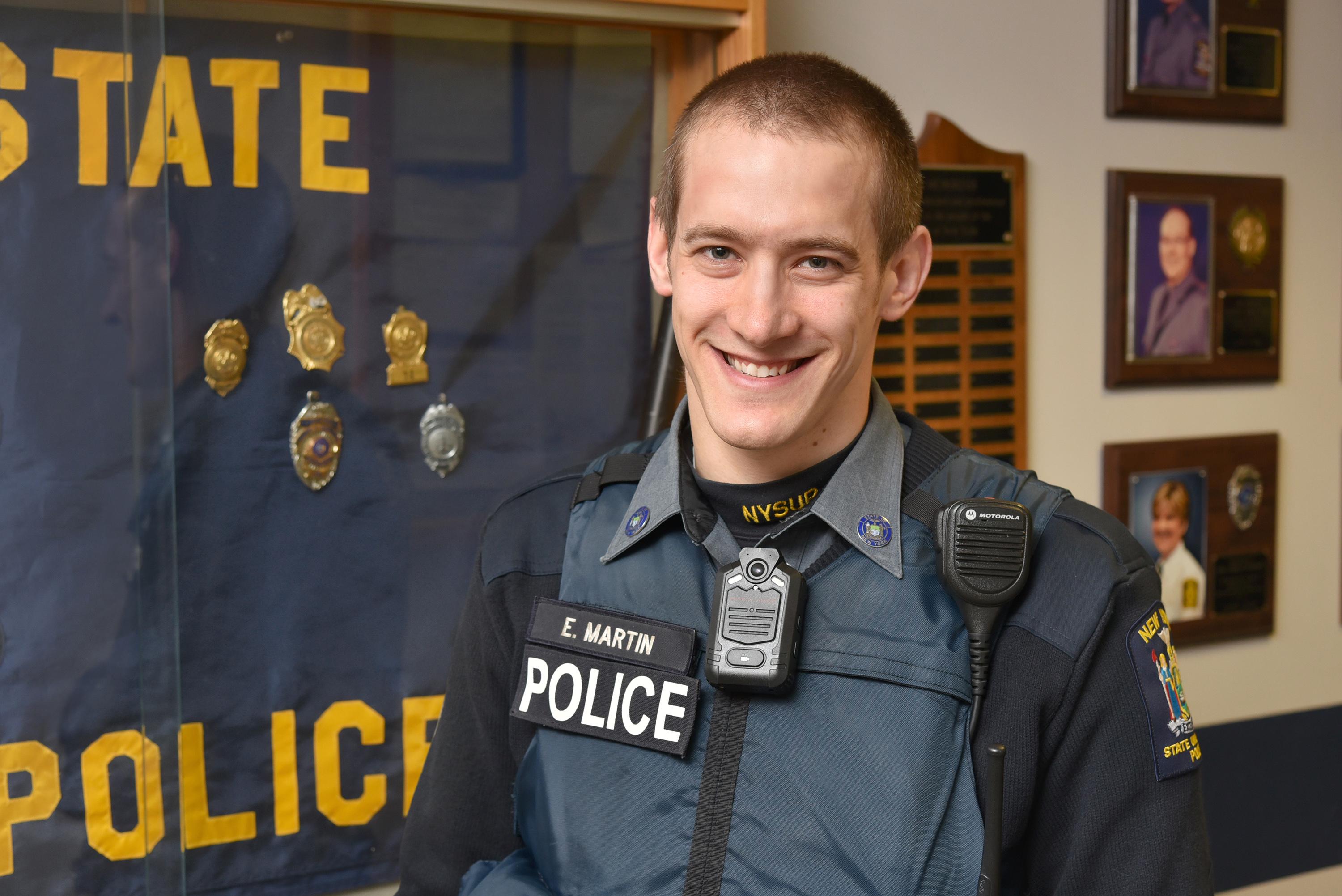Capturing evidence -- University Police at SUNY Oswego have issued cameras worn center-of-chest to 17 members of the department's Patrol Division -- such as Officer Eric Martin (above) -- following their recent training. The devices record law enforcement officers' encounters with citizens, for their mutual benefit.
University Police at SUNY Oswego deployed its body-worn cameras for patrol officers today (Feb. 1), mobilizing the point-of-view evidence-capturing devices that law enforcement departments across the country are adopting.
SUNY Oswego's department joins the Oswego Police Department and six other State University system departments to employ cameras, worn on the center of an officer's chest, to document traffic stops and other encounters as a deterrent to potential conflicts at the point of contact or in court.
"Technology changes, and we do our best to keep up with it, to help us continue to make this a very safe campus," said University Police Chief John Rossi Jr. "Police body cameras have been an emerging tool to help defuse situations on the civilian side and allowing officers to use less force when necessary."
Rossi said officers will use the chest-mounted cameras throughout their shifts. A green LED light on the device will show when it is on. Videotaped encounters will be uploaded to a server daily when the officer returns the unit to a docking station for recharging.
"They are simple to use, have 1080p resolution (for video) and 33 megapixels for photographs," the chief said. "Videos cannot be deleted or altered in any way, and will be stored for up to 60 days. If a video is flagged or has filmed an arrest or significant incident, it will be stored indefinitely. A copy of all arrest videos will be provided to the Oswego County District Attorney's Office."
SUNY's University Police Department has adopted a Body Worn Camera Policy, which has the approval of the university system's legal counsel. It provides guidelines and direction to the officers, including potential personal-privacy issues.
For example, Rossi said, if the encounter takes place in a person's room on campus and they are not a subject in a law enforcement action, the person can ask for the video and/or audio to be turned off.
Defense attorneys and suspects or complainants can have access to the video and/or audio through the Freedom of Information Law, Rossi said, as long as some legal exemption does not apply.
Each campus's University Police Department needs to have its own budget for the cameras, the chief said. Oswego's department, under terms of a state contract, purchased 17 Safety Vision units, software and the docking station, which were installed and initial training provided by LINSTAR, a division of IdentiSys Inc.
"Funding was provided through the department's budgeted equipment fund," Rossi said. "District Attorney Gregory Oakes also provided drug seizure funds and funding from a vehicle from a convicted drug dealer that will be going to auction this spring."
Body-worn cameras became University Police routine after two lieutenants and a tech sergeant completed training of 17 members of the patrol division, Rossi said.
For more information, contact University Police at oswego.edu/police or call 315-312-5555.




